Through this exploration, I hope to offer clarity and insight into how testosterone influences everything from our physical attributes to our psychological state. Join me as we delve into the world of hormones and discover the significance of testosterone in the intricate tapestry of the male physiology.
Table of Contents
ToggleWhat is Testosterone?
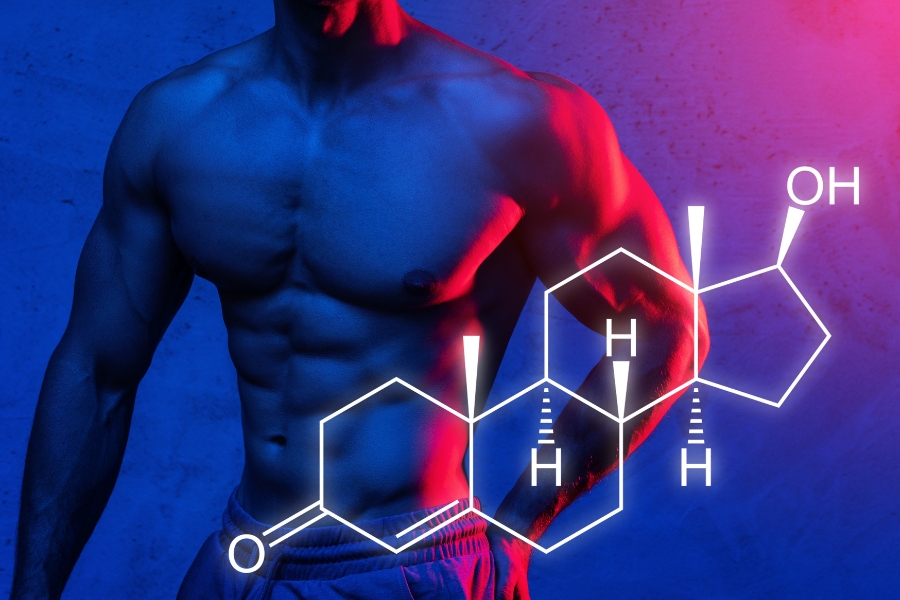
What is Testosterone The best effects of Testosterone on the male body
Testosterone is a steroid hormone that is often associated with masculinity and is a critical component in the development and maintenance of male attributes. However, it’s not exclusive to men; women also produce testosterone, albeit in much smaller quantities. Its role in the body is multifaceted, influencing a range of functions from muscle growth to mood regulation.
When we talk about testosterone, it’s important to understand it’s not just a single substance but rather a part of a larger family of hormones called androgens. These are responsible for the development of male characteristics during puberty, and they continue to play an essential role throughout a man’s life.
As a professional diving into this topic, I recognize the significance of testosterone beyond its physical implications. It’s a hormone that also affects cognitive abilities, emotional well-being, and even social behaviors. Understanding what testosterone is sets the foundation for appreciating its extensive reach within the body.
Production of Testosterone in the body
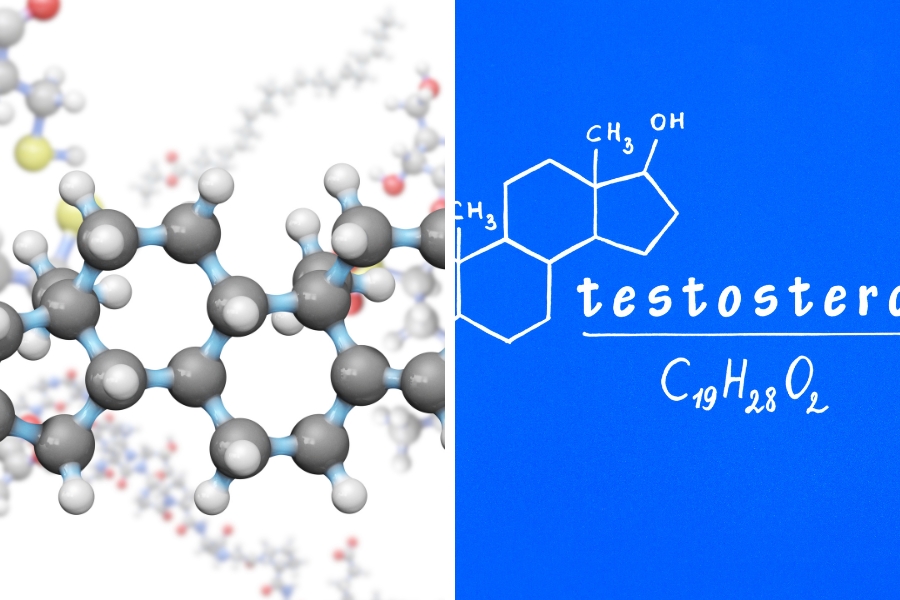
What is Testosterone The best effects of Testosterone on the male body
Testosterone production is overseen by a complex interplay between the brain and the gonads. The hypothalamus, a region deep within the brain, releases gonadotropin-releasing hormone (GnRH). This GnRH acts as a messenger, stimulating the pituitary gland to produce luteinizing hormone (LH). LH, in turn, travels through the bloodstream to the gonads.
In males, LH reaches the testes and binds to receptors on Leydig cells. These Leydig cells are the primary site of testosterone production in males, and upon receiving the LH signal, they ramp up testosterone production. Testosterone is crucial for male sexual development, including sperm production, muscle and bone growth, and development of male characteristics like facial and body hair.
While the testes are the champion testosterone producers in males, small amounts are also churned out by the adrenal glands. These adrenal glands sit atop the kidneys and have various functions, including hormone production. In both males and females, the adrenal glands produce a small but steady stream of testosterone, contributing to overall hormonal balance.
For females, the story is a bit different. The ovaries, like the testes, are stimulated by LH to produce some testosterone. However, the ovaries are primarily focused on estrogen production for regulating the menstrual cycle and other female sexual functions. The adrenal glands again play a supporting role in females, producing a small amount of testosterone.
Overall, testosterone production is a finely tuned process with the testes reigning supreme in males and the ovaries taking the lead role in females, all under the watchful eye of the brain’s hormonal control center.
Effects of Testosterone on the endocrine system
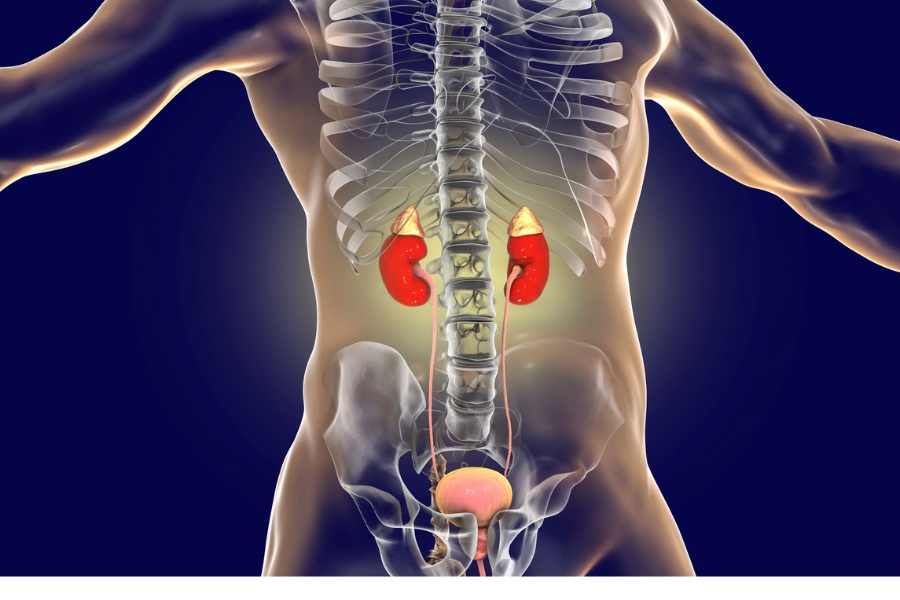
What is Testosterone The best effects of Testosterone on the male body
Testosterone plays a significant role in regulating the endocrine system itself, creating a feedback loop to maintain hormonal balance. Here’s how it affects the endocrine system:
Negative Feedback Loop:
- Production Control: Testosterone acts like a thermostat. When testosterone levels rise in the bloodstream, they send a signal to the hypothalamus, a part of the brain that acts as the control center for the endocrine system. This signal tells the hypothalamus to slow down production of gonadotropin-releasing hormone (GnRH).
- Downstream Impact: GnRH stimulates the pituitary gland to produce luteinizing hormone (LH). With lower GnRH due to high testosterone levels, the pituitary gland reduces LH production.
- Less Stimulation, Less Testosterone: LH travels to the testes and tells them to produce testosterone. When LH levels drop due to the negative feedback loop, testosterone production in the testes also decreases. This creates a balanced system where rising testosterone levels eventually lead to a decrease in its own production, preventing runaway testosterone surges.
Other Effects:
- Sex Hormone Harmony: Testosterone can also influence the production of other sex hormones. For example, high testosterone levels may slightly suppress estradiol, a type of estrogen, in males. This helps maintain the balance between male and female sex hormones.
- Growth Hormone Boost: Testosterone can indirectly stimulate the production of growth hormone, another important hormone for development and metabolism. This further contributes to muscle and bone growth.
External Testosterone and the System:
- Disruption of Feedback Loop: Introducing testosterone from external sources, like testosterone replacement therapy (TRT), can disrupt the natural feedback loop. This is why monitoring hormone levels is crucial during TRT to ensure proper balance.
Overall, testosterone acts as a conductor within the endocrine system, influencing the production of other hormones and maintaining a delicate balance for optimal male health.
Effects of Testosterone on the reproductive system

What is Testosterone The best effects of Testosterone on the male body
Testosterone is like the CEO of the male reproductive system, calling the shots for many crucial functions. Here’s a breakdown of its key effects:
Development and Maturation:
- Pubertal Powerhouse: During puberty, the rise in testosterone levels triggers the development of the male reproductive organs. This includes enlargement of the penis and testes, descent of the testes into the scrotum, and growth of the prostate gland.
- Sperm Production Champion: Testosterone is essential for sperm production. It stimulates the Leydig cells in the testes to produce testosterone, which in turn fuels the process of spermatogenesis (sperm production).
Function and Performance:
- Sperm Health Maestro: Testosterone not only increases sperm production but also influences sperm quality. It promotes the maturation of sperm cells, improving their motility (movement) and ability to fertilize an egg.
- Libido Leader: Testosterone is a major player in sex drive for males. It influences desire, arousal, and overall sexual function.
Maintaining Balance:
Testosterone levels naturally decline with age, which can impact sperm production and sex drive. However, there are ways to support healthy testosterone levels:
- Balanced Diet: Maintaining a healthy diet with adequate protein, vitamins, and minerals can contribute to optimal testosterone production.
- Regular Exercise: Exercise, particularly strength training, can help boost testosterone levels naturally.
- Healthy Weight Management: Maintaining a healthy weight can positively influence testosterone levels.
It’s important to consult with a healthcare professional if you have concerns about testosterone levels or are considering testosterone replacement therapy. They can assess your individual needs and recommend the best course of action for your reproductive health.
Effects of Testosterone on sexual ability

What is Testosterone The best effects of Testosterone on the male body
When examining the effects of testosterone on sexual ability, it’s clear that this hormone is a key player. It’s often referred to as the driving force behind libido in men. A well-balanced testosterone level is associated with a healthy sex drive and contributes to erectile function and overall sexual satisfaction.
Testosterone’s influence on sexual ability extends to psychological aspects as well. It can affect confidence, mood, and mental well-being, all of which are important contributors to a fulfilling sexual experience. Consequently, fluctuations in testosterone levels can have noticeable impacts on a man’s sexual health and quality of life.
In my professional exploration of the topic, the connection between testosterone and sexual ability is not only about physical mechanics but also about emotional and psychological nuances. It’s a complex interplay that underscores the hormone’s significance in a man’s intimate life.
Desire Drive: Testosterone acts like a captain for sex drive, influencing how much desire a man feels. Higher testosterone levels are linked to increased sensitivity, a stronger urge for intimacy, and a greater frequency of sexual activity.
Erection Engineering: Testosterone helps with the blood flow to the penis, which is crucial for achieving and maintaining an erection. When testosterone levels are low, men may experience erectile dysfunction (ED), including difficulty getting or keeping an erection.
Sperm Production Powerhouse: Testosterone is a key ingredient in the sperm production factory. It fuels the process of spermatogenesis, influencing both the quantity and quality of sperm. Healthy testosterone levels are associated with a higher number of sperm and better sperm motility (movement), which is important for fertilization.
Effects of Testosterone on the central nervous system
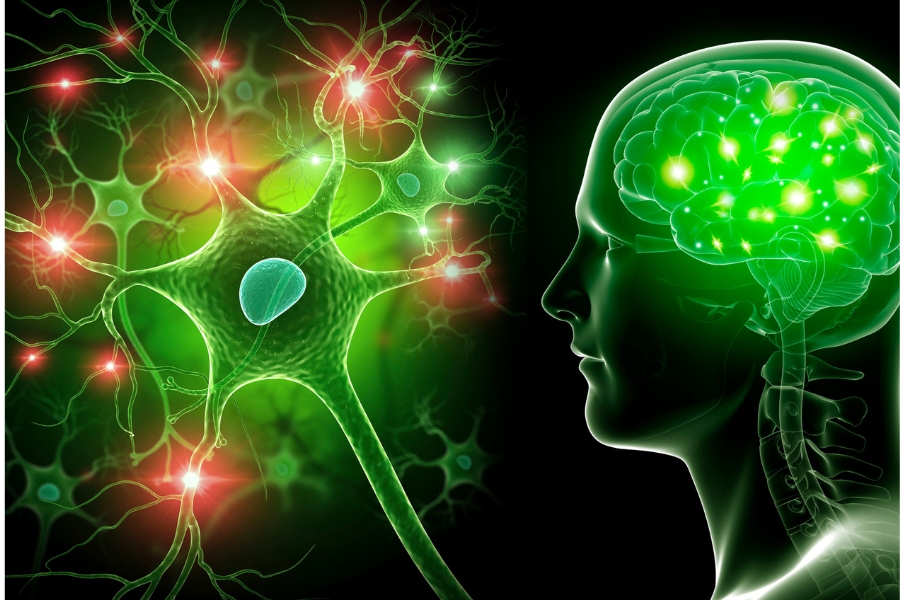
What is Testosterone The best effects of Testosterone on the male body
Turning our attention to the effects of testosterone on the central nervous system, we uncover a realm where this hormone has considerable influence. Testosterone is involved in cognitive processes such as memory, attention, and spatial abilities. It also plays a role in mood regulation, potentially affecting the incidence of depression and anxiety.
The central nervous system is a critical communication hub in our bodies, and testosterone’s effects on it can alter not just our physical state but our mental and emotional landscapes as well. This is an area of increasing interest in medical research, as understanding these connections could lead to new insights into various neurological and psychiatric conditions.
Furthermore, testosterone’s impact on the central nervous system underscores the importance of hormonal balance for cognitive health and emotional stability. It highlights the often-overlooked fact that hormones can have profound effects on how we think, feel, and behave.
Neuroprotection: Studies suggest testosterone has neuroprotective qualities. It may help maintain the health of neurons and even promote their growth by influencing neuron size, neurite growth, and synaptogenesis . This could potentially reduce the risk of neurodegenerative diseases.
-
Cognitive function: Testosterone may influence memory and cognitive function. While research results can be conflicting, some studies suggest testosterone supplementation can improve memory in both men and women experiencing age-related cognitive decline [4].
-
Mood and behavior: Testosterone levels are linked to mood regulation. Lower testosterone levels in men have been associated with symptoms of depression and anxiety [5]. Testosterone also plays a role in aggression, motivation, and social behavior.
How it works: Testosterone exerts its effects in the CNS through two main mechanisms:
- Androgen receptors (ARs): Testosterone binds directly to ARs in neurons, affecting gene expression and influencing various cellular functions.
- Aromatization: A small portion of testosterone is converted into estradiol, a type of estrogen, which can then bind to estrogen receptors (ERs) in the brain and influence neural function.
Effects of Testosterone on skin and hair
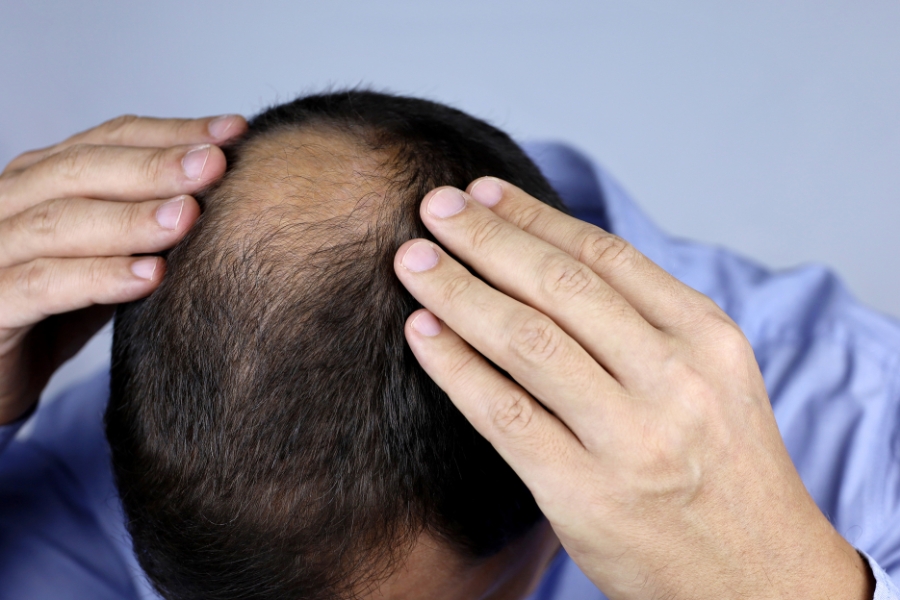
What is Testosterone The best effects of Testosterone on the male body
The effects of testosterone on skin and hair are among the most visible signs of its action in the body. Testosterone stimulates the production of sebum, an oily substance that can contribute to the development of acne. It also affects the growth and distribution of body and facial hair, a hallmark of male secondary sexual characteristics.
In terms of skin health, testosterone’s influence can be a double-edged sword. While it can enhance the thickness and strength of the skin, it can also predispose individuals to certain skin conditions. The hormone plays a pivotal role in the typical male pattern of hair growth, including the potential for hair thinning and balding later in life.
As someone who understands the social and psychological importance of appearance, I recognize how these effects can impact a person’s self-esteem and body image. It’s a reminder that testosterone’s reach extends beyond internal health to influence how we present ourselves to the world.
-
Increased Sebum Production: Testosterone stimulates the sebaceous glands in your skin, which are responsible for producing sebum, a natural oil. This can lead to oilier skin, especially in areas with more sebaceous glands like the face, back, and chest. Oilier skin can be a contributing factor to acne breakouts.
-
Hair Growth: Testosterone plays a complex role in hair growth. It promotes growth of facial and body hair, which is why men typically have more body hair than women. However, testosterone’s influence on scalp hair growth is a double-edged sword. It can thicken hair strands but also contribute to a form of hair loss called androgenetic alopecia, more commonly known as male pattern baldness. This is because testosterone is converted to dihydrotestosterone (DHT) which can shrink hair follicles on the scalp, leading to hair thinning and eventual baldness in genetically predisposed individuals.
Here’s some additional information to consider:
-
Acne: The increased sebum production caused by testosterone can clog pores and contribute to acne development.
-
Skin Texture: Oily skin can also lead to the appearance of larger pores.
-
Age-Related Testosterone Decline: As men age, testosterone levels naturally decline. This can lead to a decrease in oil production and potentially less acne, but it can also contribute to hair loss and a decrease in beard growth.
It’s important to remember that these are general effects, and individual experiences can vary depending on factors like genetics and overall health. If you have concerns about testosterone’s impact on your skin or hair, it’s always best to consult a dermatologist or healthcare professional.
Effects of Testosterone on muscles, fat, and bones

What is Testosterone The best effects of Testosterone on the male body
Another critical aspect of testosterone’s influence is seen in its effects on muscles, fat, and bones. Testosterone is renowned for its anabolic properties, promoting muscle mass and strength, which are not only important for physical performance but also for overall health and metabolism. It encourages the development of lean muscle tissue while inhibiting fat accumulation, thereby shaping the body’s composition.
In terms of bone health, testosterone is vital for bone density and strength, playing a preventive role against osteoporosis. This is particularly significant as men age and the risk of bone-related injuries increases. Maintaining adequate testosterone levels is thus crucial for musculoskeletal health and function.
Moreover, the distribution of body fat is influenced by testosterone, with lower levels potentially leading to a higher body fat percentage and associated health risks. The hormone’s impact on these areas highlights its central role in maintaining a healthy, functional physique.
Muscles: Testosterone acts like a muscle-building superhero. It:
- Increases Protein Synthesis: Testosterone stimulates the process of protein synthesis in muscle cells, which is essential for building and repairing muscle tissue. This allows you to build muscle mass more efficiently, especially when combined with exercise.
- Boosts Growth Hormone: Testosterone indirectly increases the production of growth hormone, another key player in muscle growth and development.
Fat: Testosterone also plays a role in fat metabolism:
- Reduces Fat Storage: Testosterone helps your body store less fat, particularly in areas like the hips and thighs. This can lead to a leaner body composition.
- Increases Fat Burning: It may also enhance your body’s ability to burn fat for energy, contributing to weight management.
Bones: Strong bones rely on testosterone as well:
- Increases Bone Mineral Density: Testosterone promotes the production of osteoblasts, cells responsible for building bone. This helps increase bone mineral density, making bones stronger and reducing the risk of fractures.
- Reduces Bone Breakdown: It also helps inhibit the activity of osteoclasts, cells that break down bone tissue.
The Flip Side: It’s important to remember that testosterone levels naturally decline with age, especially in men. This decline can lead to:
- Muscle Loss: Reduced testosterone can make it harder to maintain muscle mass and can even lead to muscle wasting.
- Increased Body Fat: With less testosterone’s influence on fat storage and burning, body fat percentage may increase.
- Weaker Bones: Lower testosterone levels can contribute to bone loss and osteoporosis, increasing the risk of fractures.
Effects of Testosterone on the circulatory system
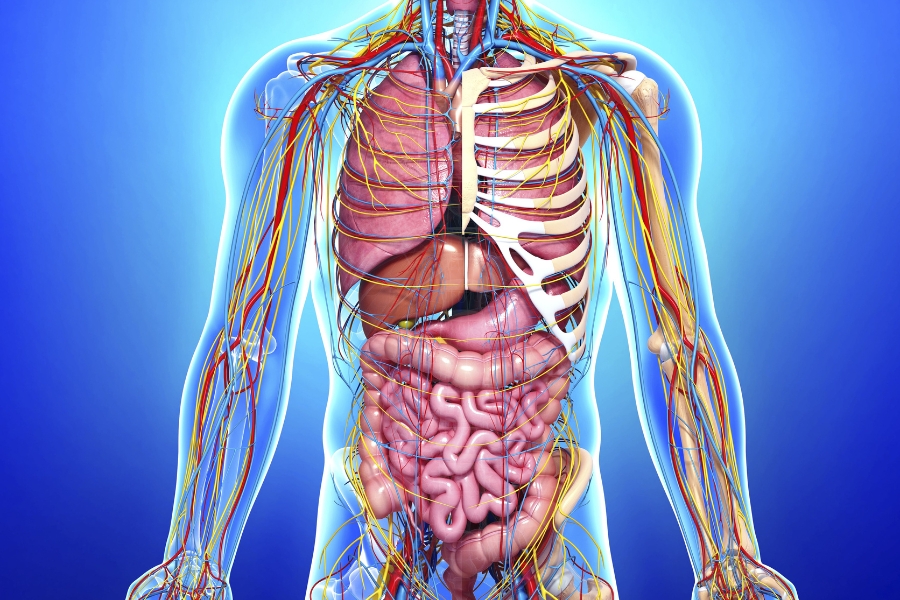
What is Testosterone The best effects of Testosterone on the male body
The circulatory system is also a beneficiary of testosterone’s diverse effects. Testosterone has been shown to influence red blood cell production, potentially improving oxygen transport and physical endurance. However, this effect must be carefully balanced, as excessive red blood cell counts can lead to complications such as thrombosis.
Furthermore, testosterone can impact vascular health, playing a role in the dilation and constriction of blood vessels. This, in turn, affects blood pressure and circulatory efficiency. Understanding these effects is crucial for managing cardiovascular health, especially considering that heart disease remains a leading cause of mortality among men.
As we explore the intricate ways in which testosterone interacts with the circulatory system, it becomes apparent that the hormone’s influence extends well beyond its traditional roles. Its contribution to cardiovascular function is a vital aspect of overall well-being.
Potential Benefits:
- Vasodilation: Some studies suggest testosterone may act as a vasodilator, relaxing blood vessels and potentially improving blood flow.
- Endothelial Repair: Testosterone might have properties that help repair and maintain the endothelium, the inner lining of blood vessels. This could be beneficial for overall cardiovascular health.
- Reduced Blood Sugar: Testosterone may improve glycemic control, potentially reducing the risk of diabetes which can negatively impact circulation.
Potential Risks:
- Increased Blood Pressure: Some studies suggest a link between testosterone therapy and elevated blood pressure, especially in older men.
- Blood Clot Risk: Testosterone might increase the risk of blood clots, although the evidence is not entirely conclusive.
- Atherosclerosis: The relationship between testosterone and atherosclerosis, the buildup of plaque in arteries, is complex. While some research suggests testosterone might have protective effects, others indicate it might play a role in plaque formation.
Effects of Testosterone on the nervous system
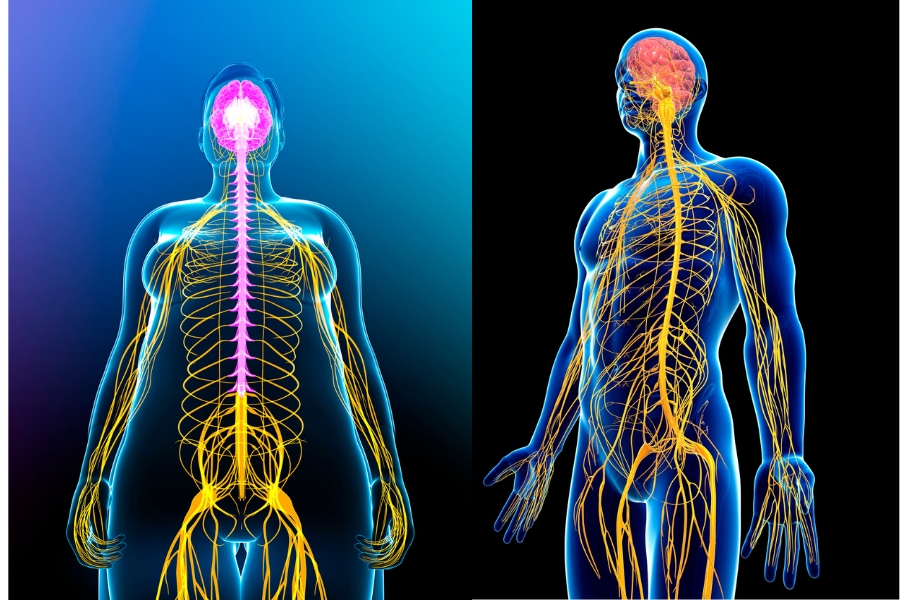
What is Testosterone The best effects of Testosterone on the male body
Finally, we come to the effects of testosterone on the nervous system, which encompass a range of physiological and psychological functions. Testosterone has been linked to the modulation of neurotransmitters, which are the chemical messengers responsible for communication between nerve cells. This modulation could potentially affect everything from mood to motor control.
Moreover, testosterone’s impact on the nervous system can influence stress response, aggression, and even risk-taking behavior. This is an area of great interest in behavioral science, as it offers insights into the biological underpinnings of male behavior and psychological traits.
Understanding the multifaceted role testosterone plays within the nervous system is crucial for appreciating its overall impact on health and behavior. It’s a hormone that touches nearly every aspect of our lives, from how we feel to how we act.
Testosterone, the sex hormone classically associated with males, plays a surprising role in the nervous system (CNS) for both sexes. It influences a variety of functions, including mood, cognition, and behavior. Here’s a closer look at how testosterone affects the nervous system:
Neuroprotective Effects: Studies suggest testosterone has neuroprotective qualities. It may help maintain the health of neurons and even promote their growth by influencing neuron size, neurite growth, and synaptogenesis . This could potentially reduce the risk of neurodegenerative diseases like Alzheimer’s or Parkinson’s.
Cognitive Function: Testosterone may influence memory and cognitive function. While research results can be conflicting, some studies suggest testosterone supplementation can improve memory in both men and women experiencing age-related cognitive decline [4].
Mood and Behavior: Testosterone levels are linked to mood regulation. Lower testosterone levels in men have been associated with symptoms of depression and anxiety [5]. Testosterone also plays a role in aggression, motivation, and social behavior.
How Testosterone Works: Testosterone exerts its effects in the CNS through two main mechanisms:
- Androgen Receptors (ARs): Testosterone binds directly to ARs in neurons, affecting gene expression and influencing various cellular functions.
- Aromatization: A small portion of testosterone is converted into estradiol, a type of estrogen, which can then bind to estrogen receptors (ERs) in the brain and influence neural function.
Important to Note: Research on testosterone’s effects on the CNS is ongoing and complex. Testosterone levels naturally decline with age in men, and testosterone replacement therapy (TRT) is a consideration for some men with low testosterone and associated symptoms. However, TRT can come with side effects and is not appropriate for everyone. If you have questions or concerns about testosterone levels, it’s important to consult with a healthcare professional.
Conclusion
In conclusion, testosterone is a hormone of remarkable breadth and complexity. Its effects on the male body are profound and far-reaching, influencing everything from the endocrine and reproductive systems to sexual ability, the central nervous system, and even our physical appearance. It plays a pivotal role in shaping the male physique, affecting muscle, fat, and bone composition, as well as having a significant impact on the circulatory and nervous systems.
Understanding “What is Testosterone?” has provided us with invaluable insights into how this hormone orchestrates a multitude of physiological processes and behaviors. As we recognize the importance of maintaining hormonal balance, it becomes clear that testosterone is not just a symbol of masculinity but a fundamental component of male health and well-being.
For those seeking to delve deeper into their own health or the science of hormones, I encourage you to continue exploring and learning about this fascinating hormone. Whether you’re a professional in the field or simply someone interested in personal health, the study of testosterone and its myriad effects on the male body offers a window into the intricate workings of our biology.














